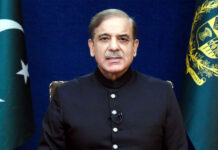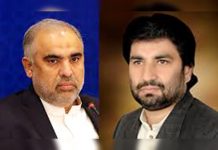The Supreme Court on Tuesday reserved its verdict in a case pertaining to what constitutes ‘terrorism’ and, consequently, what cases should be tried under the Anti-Terrorism Act (ATA).
Last month, the apex court formed a seven-member larger bench to examine the issue when the matter came under discussion while
the court was hearing two reviews petitions.
Chie
f Justi
ce Asif Saeed Khosa, during the hearing in Islamabad, remarked that the ATA was full of “ambiguities” and regretted that “routine criminal cases are also tried in anti-terrorism courts”.
“Every grave crime is not an act of terrorism,” the top judge remarked at one point. “God willing, we will define what constitutes as terrorism.”
The chief justice noted that “planned proliferatio
n of insecurity is [defined as] terrorism”, but also observed that “all crimes result in extensio
n of insecurity”. He reasoned that if a crime is committed with the intention of spreading insecurity, then maybe that ought to be classified as terrorism.
Justice Mansoor Ali Shah, at this point, observed that the intention of a perpetrator cannot be ascertained just by the extent of the damage
they inflict.
Justice Khosa also noted that neither the United Nations nor the United States had ever been able to give a singular definition of terrorism.
As the verdict was reserved,
the chief justice vowed that
the court would ascertain a universal definition of terrorism.













